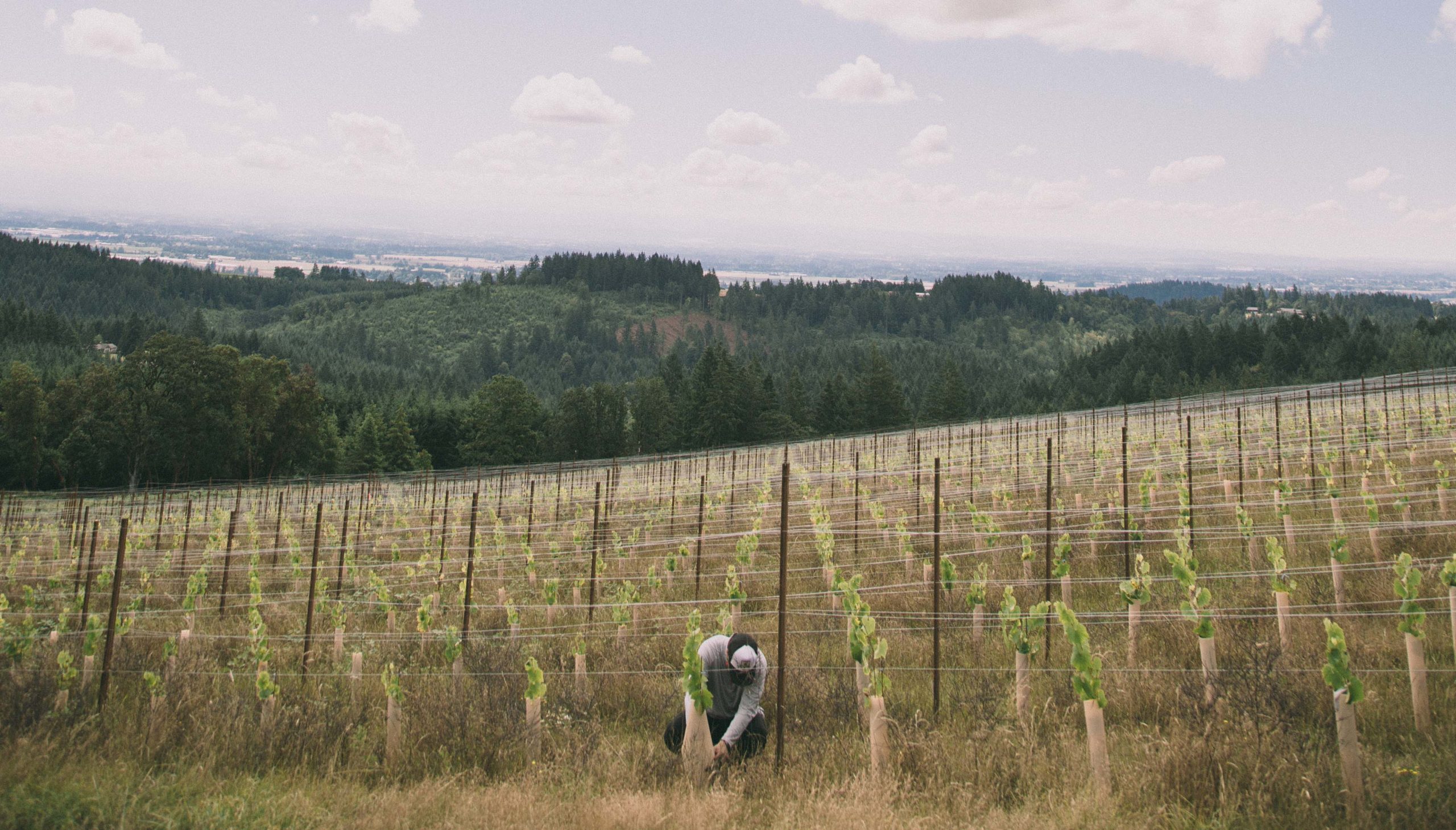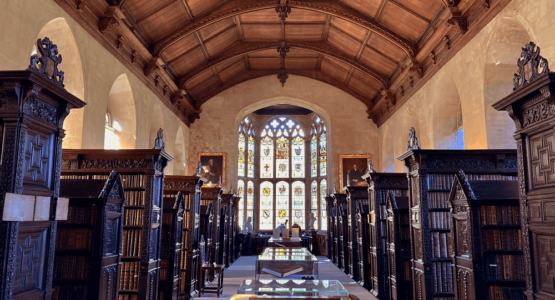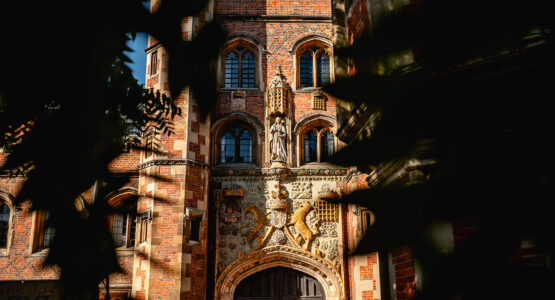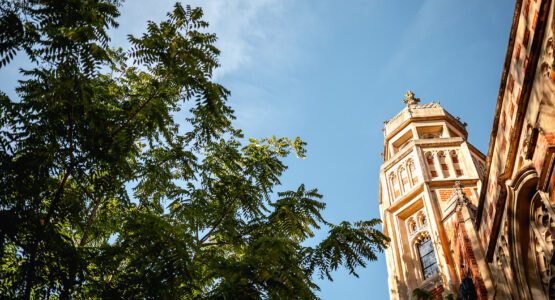Dr Tai Ran Niew (1988) studied for a PhD in Fluid Mechanics at St John’s College. After just over a decade of working in investment banking, he left Goldman Sachs, embarked on a journey in wine, and eventually established a vineyard in Oregon, USA. The inaugural vintage of Niew Vineyards was bottled in early 2021.
When I left the world of finance in 2006, I definitely did not plan to be a winemaker. It was a process that felt like putting together a jigsaw puzzle. As I embarked on the journey to learn about wine, I was collecting pieces along the way, and through the years my plan slowly became clearer and clearer.
It is a given that the starting point is a love of wine. Sharing good wine, with delicious food and amiable company, is one of the most civilised things in life. But the initial stages of my travel and studies were not simply about a love for wine, they were rather fuelled by academic curiosity.
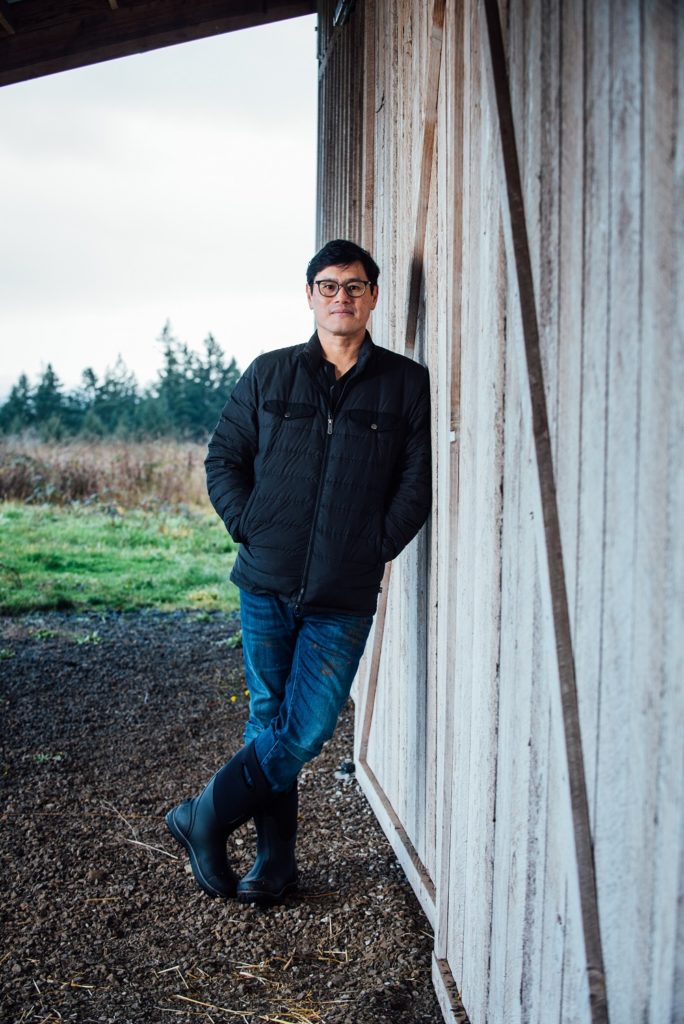
My long stint in finance was occupied with the urgent reality of trade and commerce, which left me with very few moments of quiet contemplation. Viticulture and oenology meant I re-engaged with science and technology, something I missed dearly since leaving John’s. Immersing myself in the culture of wine meant delving into volumes of delightful books, usually on history and aesthetics. For over five years, I enrolled in formal studies and travelled widely. This has involved helping Jancis Robinson and her team on a book, working as a harvest intern in South Australia, blending wine in Bordeaux, and doing research on biodynamics in Burgundy.
Immersing myself in the culture of wine meant delving into volumes of delightful books, usually on history and aesthetics.
Alas, it was not long before I had to make a decision on next steps, and making wine, and more importantly starting a vineyard, does involve a different set of considerations. The most important perspective, one that ultimately led to my final decision to proceed, is very personal, and it is about an opportunity to commune with nature.
We were very lucky that when we grew up in Singapore, we always had a small plot of land to cultivate. My late mother was a keen horticulturist, and the whole family would be involved in tending to the garden and fruit trees. Those moments are some of my fondest childhood memories. As I grew older, the ocean became a huge source of joy and solace for me. I am a keen wave-surfer, and have been profoundly influenced by its underlying culture, which is imbued with a graceful, ineffable, and almost Taoist connection with nature.
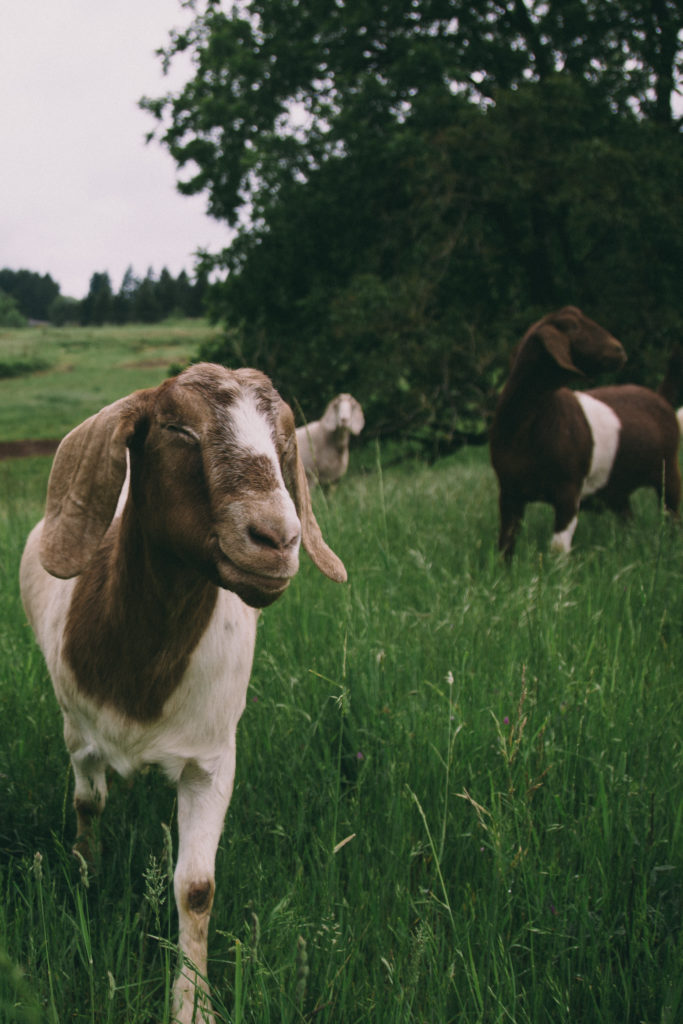
I have found a similar connection when travelling through the wine-regions, and find myself attracted to the ethos of producers who farm sensitively. The sublime and visceral wines that they produce are of course a function of what they do in the winery too, but much has already been achieved in the vineyard.
In planning for our sustainable farming regime, I was heavily influenced by the “natural farming” philosophy of Masanobu Fukuoka. It is hard to succinctly summarise his ethos, and I would urge anyone who is interested to find a copy of his seminal book The One Straw Revolution. A huge part of his philosophy hinges on the idea that we should work with nature and not against it. By harnessing its inherent flow and paths, the creation of a stable and balanced eco-system will thrive with minimal human intervention.
Crucially, as he has demonstrated with his farm in Japan, when his protocol is implemented properly, the same farming goals can be achieved with less effort, more elegance, and will be synchronised with nature. He is a trained scientist and what he proposes is rigorous.
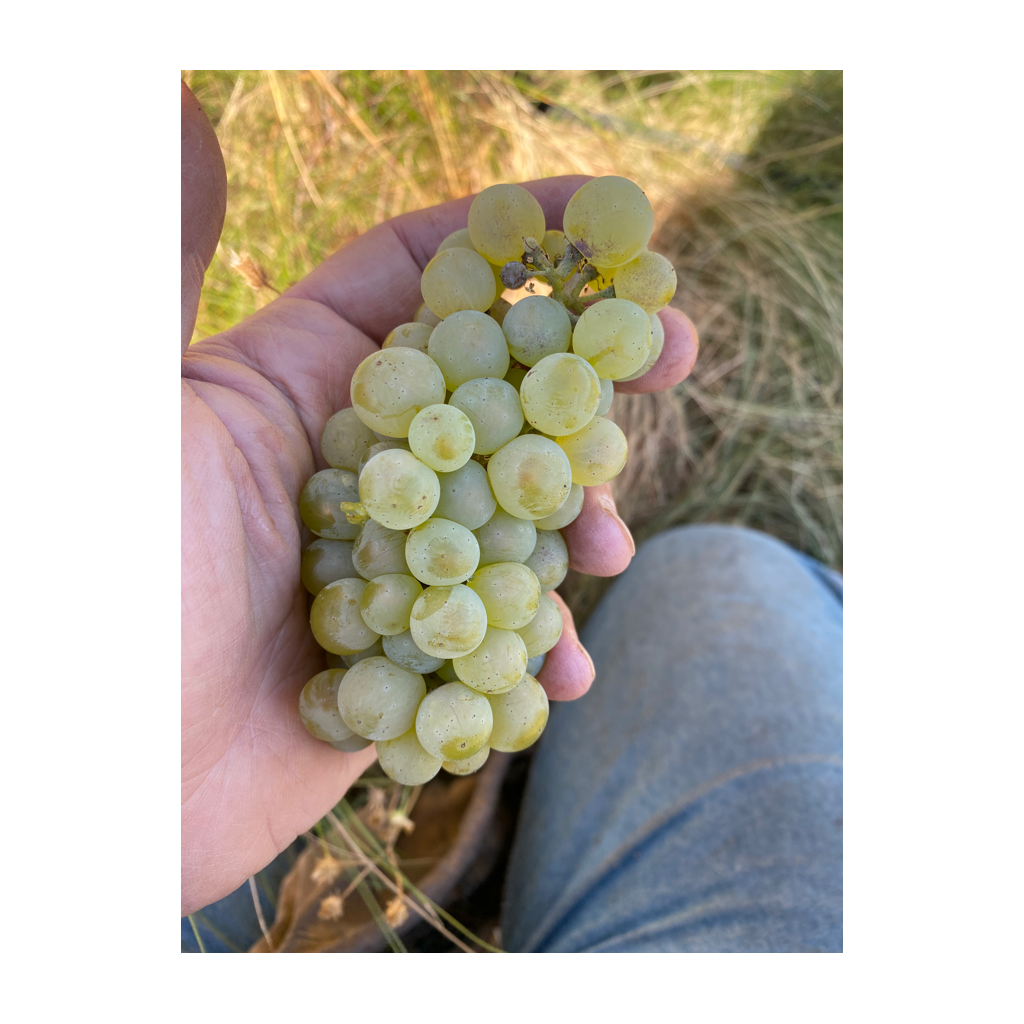
As for my own vineyard, it goes without saying that I don’t use herbicide or pesticides, or even sulphur. I don’t till or cultivate the land and I don’t prepare compost. I have experimented with spraying milk to deal with powdery mildew. Not surprisingly, the land is relatively wild, and natural bio-diversity is encouraged. The vineyard only accounts for a small proportion of the total area of the site. I have a pack of goats that are marshalled by a llama, to balance the vigour of the natural flora. It is a process that required patience, observation, contemplation, and a fair bit of trial and error. But I have harvested fruit! The bunch of grapes in my hand in the photo was grown with just air, sun and water.
I have chosen this path, not for commercial reasons. After all, some of the greatest wines we drink today are made from conventional viticulture. It is also not a critique of organic and biodynamic winemaking. It is just a personal choice of finding a protocol that’s logically consistent and interesting. What I do in the winery is similarly influenced by this philosophy. I don’t think of the process as making wine, but creating an environment where the wine can thrive.
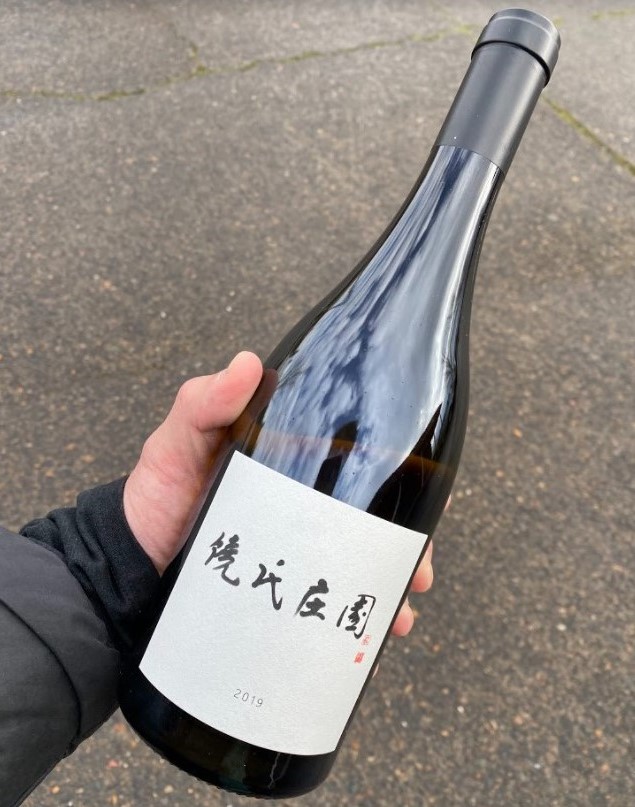
Although I have already bottled my first vintage, we are still very much at the beginning of a process that will take decades, and perhaps a generation or two, to even begin to appreciate the intricacies of the eco-system that is being established. There is much to learn. If there are any Johnians who are interested in learning more, or have views and ideas, I would love to hear from them!
You can find out more about the philosophy of Niew Vineyards and its inaugural vintage by visiting the website: http://www.niewvine.com/

